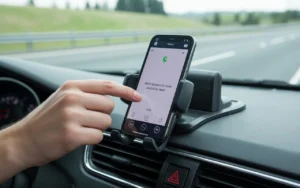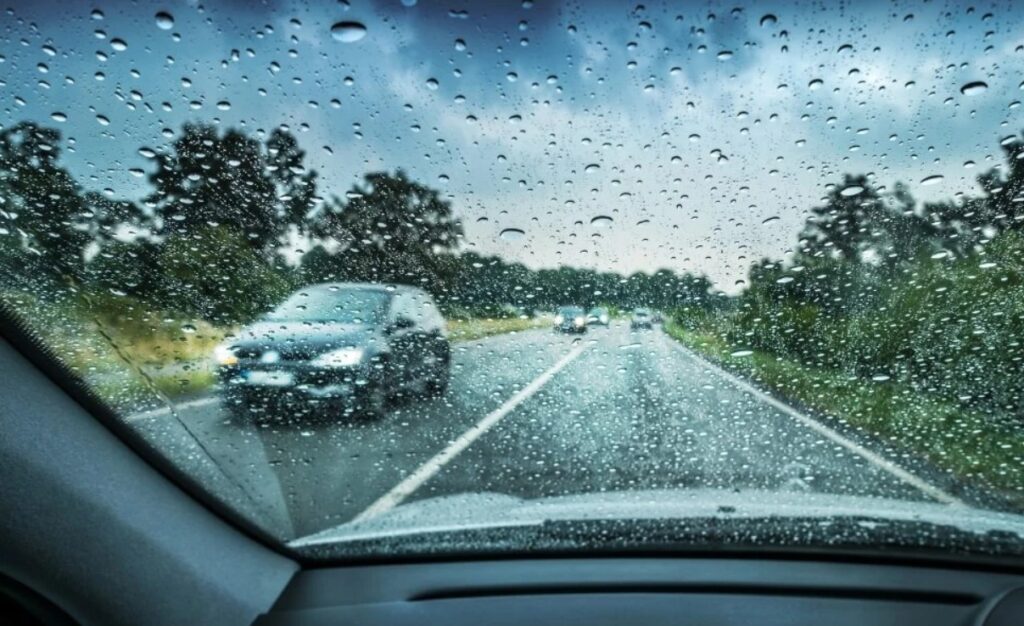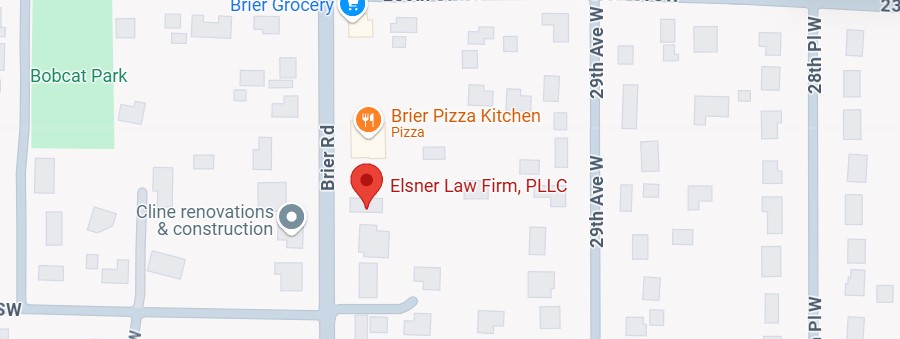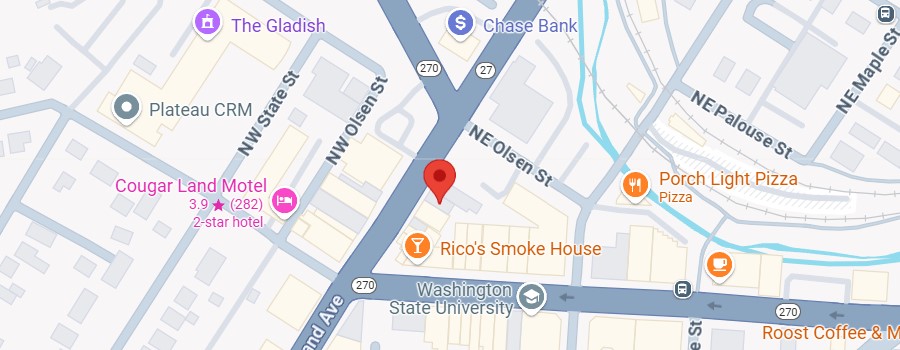Everything You Need to Know About Washington State’s New Cell Phone Law
Introduction to Road Safety
Road safety is a top priority for everyone on Washington’s roads, and one of the most significant threats to safe driving is distracted driving. Distracted driving happens when a driver’s attention is taken away from the road by activities like using a cell phone or any personal electronic device. According to the Washington Traffic Safety Commission, distracted driver-involved crashes have accounted for at least 20% of all traffic fatalities in King County between 2008 and 2012, a sobering statistic that highlights just how significant the problem is. In Washington State, strict laws are in place to reduce the risks associated with using electronic devices while driving. It’s crucial for drivers to recognize the top causes of car accidents and make a conscious effort to keep their focus on the road, not their phones or other devices. By understanding the risks and following the law, drivers can help prevent crashes, injuries, and fatalities on our roads.
Overview of Washington’s Distracted Driving Law
Washington’s distracted driving law, primarily focused on the use of electronic devices while driving, is strict and heavily enforced. With the implementation of the E-DUI law, the state has made it clear that any action that takes a driver’s attention off the road can result in a ticket.
- Specific Laws and Fines: Drivers caught using a phone or other electronic devices while driving are subject to fines. For the first offense, the fine is $136, and for subsequent offenses, it increases to $235. These fines apply to any use of handheld devices, including texting, browsing the internet, or making calls. However, using a hands-free device, such as a Bluetooth headset or a speakerphone, is allowed under certain conditions.
- Enforcement: Washington law enforcement actively looks for distracted drivers and has the authority to pull over and issue citations if they witness someone using an electronic device while driving. Understanding what to do when stopped by the police can help you navigate the citation process calmly.
Understanding Electronic Devices
Electronic devices such as cell phones, laptops, and tablets are among the leading causes of distracted driving. In Washington State, the law is clear: using handheld electronic devices while driving is prohibited. This includes texting, making calls, watching videos, or any other activity that takes your attention off the road. However, drivers are allowed to use hands free devices, like Bluetooth headsets or speakerphones, as long as they only require minimal use of a finger to activate or operate. The goal of these laws is to minimize distractions and keep drivers’ attention where it belongs, on driving safely. Understanding what is and isn’t permitted under Washington’s distracted driving laws is essential for all drivers, as even a momentary lapse in attention can lead to significant crashes, injuries, or even fatalities.
What Devices Does This Apply To?
Mobile devices doesn’t just mean cell phones, though they are included. The new law also applies to laptops, gaming systems, wireless device, wireless devices, and any other type of two-way messaging devices. The law applies to any person operating a vehicle, not just the driver. A passenger may use a device, but the driver cannot use a wireless device while driving.
What Can I Be Ticketed For?
While operating a vehicle and holding the device in either hand, you cannot: compose, send, read, view, access, browse, transmit, save, or retrieve email, text messages, instant messages, photographs, or other electronic data; watch a video; make or receive a calling; engage in talking on the phone; or send or read a text message. Using a hands free device is permitted under certain conditions. Additionally, activities such as eating or grooming may be considered a secondary offense if observed during a traffic stop for a primary violation. These behaviors are a common cause of collisions that drivers often overlook while in heavy traffic.

What Can I Do With My Phone?
The law states that you can have “minimal use of the finger to activate, deactivate, or initiate a function of the device.” If you do need to use your phone for GPS or any other navigation, you can use a hands free device like a phone cradle. However, drivers with instruction permits, an intermediate license, or intermediate licenses are not permitted to use any wireless device, including a hands free device, while driving, except to report an emergency. Encouraging teen driver street survival skills is vital for young motorists navigating these strict requirements. Examples of permitted actions for fully licensed drivers include using voice commands to make calls or send texts, or presetting your navigation before you start driving.
Is It Illegal to Drive with Headphones in Washington State?
Yes, it is illegal to drive with headphones on in Washington State, as they can significantly distract you from your surroundings.
- Prohibition of Headphones: Headphones, earphones, or any device that blocks your hearing while driving are prohibited. This is because they can prevent you from hearing important sounds like sirens or car horns, which could be critical for safety.
- Exceptions for Hearing Aids: The law does make an exception for hearing aids, as they are necessary for those with hearing impairments.
- Other Distractions: Aside from phone use, other distractions, such as eating or grooming while driving, can also lead to accidents. It’s important to stay alert and focused on the road at all times, especially during the risky holiday driving season when congestion is at its peak.
What Happens If You Get a Cell Phone Ticket in Washington State?
If you are issued a ticket for using a cell phone while driving in Washington State, it will likely impact your driving record and insurance rates.
- Ticket Process: If an officer observes you using your phone, they can stop you and issue a citation. This can result in a fine, which increases with each additional offense.
- Impact on Insurance: A distracted driving ticket can cause your insurance premiums to rise. Insurance companies often consider such tickets as moving violations, which means they can lead to higher rates.
Washington State’s New Cell Phone Law: Key Information
What Is Washington’s New Cell Phone Law?
Washington State’s new cell phone law, known as the E-DUI Law, was introduced to address the growing concern of distracted driving caused by mobile devices. This law applies to all drivers and significantly tightens restrictions on the use of electronic devices while behind the wheel. It is a critical update to Washington’s distracted driving laws, emphasizing the safety of everyone on the road by reducing distractions from mobile devices.
Key Changes with the E-DUI Law:
- No Handheld Devices: The law prohibits the use of handheld mobile phones and other electronic devices while driving. This includes activities such as texting, emailing, calling, and watching videos. Any action that requires the driver to use their hands to interact with a device is now considered illegal, regardless of whether the car is in motion or stopped at a light.
- Hands-Free Devices Allowed: The law does allow drivers to use hands-free devices, such as Bluetooth headsets or speakerphones, as long as they require minimal interaction. This means that the driver can answer calls or use navigation apps but must keep their focus on the road at all times. For instance, making a call using voice commands or answering via Bluetooth is permitted under the law.
- Expanded Restrictions Beyond Cell Phones: This law also covers the use of other electronic devices, not just cell phones. This includes tablets, laptops, and any other device that may distract a driver from keeping their eyes on the road.
Differences from Previous Laws:
- Texting While Driving: Prior to the E-DUI law, texting and using a mobile phone while driving was already prohibited, but the new law broadens the scope. It applies to a wider range of electronic devices and includes stricter rules on how they can be used.
- GPS and Navigation: The law also specifically addresses the use of GPS systems and other in-car navigation tools. While these devices are allowed, they must be set up before driving, and any interaction with them while driving must be minimal and should ideally be done through voice commands.
Date of Implementation:
The E-DUI law went into effect on July 23, 2017, with the goal of reducing distracted driving accidents and fatalities. Since then, Washington law enforcement has been actively issuing citations for violations, with fines and other penalties associated with the offense.
What is Washington State’s Hands-Free Law?
Washington’s hands-free law allows drivers to use certain devices, but only under strict conditions:
- Allowed Hands-Free Device Use: Drivers can use hands-free devices, including Bluetooth headsets, speakerphones, and mounted GPS devices. These devices allow you to keep your hands on the wheel and your eyes on the road.
- Exceptions and Legal Boundaries: While hands-free devices are allowed, they must not require extensive interaction. The law permits only minimal finger touch for activation.
- Bluetooth or Speakerphones: Bluetooth and speakerphones are the best options for hands-free use, as long as they do not cause distractions.
What Happens If You Use Your Phone While Driving in Washington State?
Using your phone while driving in Washington can lead to serious consequences:
- Penalties for Handheld Device Use: If you are caught using your phone while driving, you will be issued a fine. For a first offense, the fine is $136, and for subsequent offenses, it increases to $235.
- Safe Alternatives: Instead of using your phone while driving, consider using a hands-free device or setting up your GPS and phone before you begin driving. This helps you avoid distractions and ensures you stay focused on the road.
How Much Will a Cell Phone Ticket Cost in Washington State?
If you are caught using your phone while driving in Washington, you can expect to face a fine. The fines depend on the severity and frequency of the offense.
- First Offense: The fine for a first offense of using a cell phone while driving is $136. This applies to situations where a driver is caught texting, talking, or interacting with any handheld device.
- Subsequent Offenses: For each subsequent offense, the fine increases to $235. Repeat offenders may also face additional consequences, such as increased insurance premiums or potential suspension of their driver’s license.
It’s important to be aware that these fines are not just monetary; they can affect your driving record and insurance rates as well.
How Does Washington’s Cell Phone Law Compare to Other States?
Washington’s cell phone law is more stringent than in some other states. For instance, while many states focus on texting while driving, Washington’s E-DUI law covers a broader range of electronic devices, including GPS, music systems, and video use.
- Differences with Other States’ Laws: States like California and Oregon have similar laws regarding phone use while driving, but Washington’s law extends to include devices such as GPS and other wireless communication tools.
- Washington’s Unique Aspects: The implementation of the E-DUI law sets Washington apart, focusing specifically on preventing all forms of distractions caused by electronic devices, not just phones.
Are There Any Loopholes in Washington State’s Cell Phone Law?
While Washington State’s cell phone law is strict, there are a few exceptions or grey areas that people often wonder about. Many people look for “loopholes” in the law, but it’s important to understand that most of these perceived loopholes are either misconceptions or specific exceptions allowed under certain circumstances.
- Emergency Calls: If you’re facing an emergency, you are allowed to use your phone. The law permits using your phone to call for help or report an emergency, as long as it’s absolutely necessary. However, this exception should not be used as an excuse for general phone use.
- Phone Mounts vs. Handheld Devices: One common misconception is that using a phone mount is completely unrestricted. While phone mounts are allowed, it’s important to understand that if a driver has to interact with the phone (e.g., touching the screen or buttons frequently), it can still be considered a violation. The law permits phone mounts as long as the phone is set up before driving and doesn’t require continual interaction.
These exceptions aim to keep drivers focused on the road while recognizing real-life scenarios where phone use may be necessary. However, drivers should avoid assuming they can freely use their phones under the guise of these “loopholes.”
Is It Illegal to Use Your Phone While Driving in Washington State?
Yes, it is illegal to use your phone while driving in Washington unless the phone is mounted in a way that requires minimal interaction. Washington’s cell phone law is clear: handheld phones are prohibited.
- Exceptions for Hands-Free Devices: Drivers are allowed to use hands-free devices, such as Bluetooth headsets or speakerphones, as long as minimal finger touch is required to activate the device. Hands-free devices help keep the driver’s attention on the road.
- Acceptable Situations (e.g., Emergency Calls): The law allows phone use in specific situations, such as when a driver needs to make an emergency call. However, even in these cases, it’s best to pull over before using your phone.
What is the “No Touch” Law in Washington State?
Washington’s “No Touch” law refers to the restriction on using handheld devices while driving. Drivers are allowed to use phones in specific ways, as long as the interaction requires only a minimal amount of finger touch, like tapping a button or using voice commands.
- Hands-Free Device Rule: The law permits using hands-free devices such as Bluetooth or speakerphones. However, drivers should not have to use their hands more than once to activate a function.
- Minimal Finger Touch Requirement: The device should only require a minimal finger touch to activate or change a function. This ensures that the driver’s attention stays on the road.
What Happens If You Use Your Phone While Driving in Washington State?
Using your phone while driving in Washington can lead to serious consequences:
- Penalties for Handheld Device Use: If you are caught using your phone while driving, you will be issued a fine. For a first offense, the fine is $136, and for subsequent offenses, it increases to $235.
- Safe Alternatives: Instead of using your phone while driving, consider using a hands-free device or setting up your GPS and phone before you begin driving. This helps you avoid distractions and ensures you stay focused on the road.
Safe Driving Practices
Practicing safe driving habits is one of the best ways to avoid becoming a distracted driver. Set clear expectations for yourself and your passengers: if you need to use your phone or access information, always pull over to a safe location first. Avoid multitasking behind the wheel, eating, grooming, or handling electronic devices can all take your focus off the road. In emergency situations, it’s best to use your phone only when absolutely necessary, and even then, pull over if possible. Passengers can also play a role in safety by offering to answer calls or send text messages for the driver. By making these safe driving practices a habit, you can greatly reduce your risk of being involved in a distracted driving crash and help keep everyone on the road safer.
Enforcement and Road Safety
Law enforcement agencies in Washington State are committed to keeping roads safe by strictly enforcing distracted driving laws. Officers have the authority to pull over any driver they suspect of using a cell phone or other electronic device while driving. If you’re caught violating these laws, you can expect to receive a ticket, with fines starting at $136 for a first offense and increasing for subsequent offenses. Beyond the immediate financial penalty, distracted driving tickets can have significant long-term consequences, including higher insurance rates and even the potential suspension of your driver’s license. Understanding the seriousness of these offenses and the role of law enforcement in maintaining road safety is essential for all drivers. By following the law and avoiding distractions, you can help make Washington’s roads safer for everyone.
Will This Make My Insurance Rates Go Up?
Yes, getting a ticket for distracted driving in Washington State can lead to higher insurance rates. Distracted driving tickets are considered moving violations, and most insurance companies will raise your premiums if you’re ticketed for this offense. The exact increase depends on your insurance company and your driving record, but the impact can be significant. To avoid these costly consequences, it’s important to practice safe driving and avoid distractions behind the wheel. Some insurance companies may offer discounts if you complete a defensive driver training course or install anti-distracted driving devices in your vehicle. If you’re caught in a collision despite these efforts, you may need to know how to file reports in Washington with the proper authorities. If you’re concerned about how a distracted driving ticket might affect your rates, talk to your insurance company about your options and take proactive steps to keep your premiums as low as possible. By staying focused on the road, you can protect both your safety and your wallet.
Why Choose Elsner Law Firm?
At Elsner Law Firm, we are dedicated to helping those who have been impacted by distracted driving and related traffic violations. Here’s why you should choose us:
-
Exclusive Focus on Personal Injury Law in Washington State: With over 17 years of experience, we specialize in personal injury law, offering targeted expertise in Washington’s legal landscape. We are well-versed in the nuances of distracted driving laws, including the E-DUI law, ensuring that you receive the best possible representation.
-
24/7 Availability for Free Consultations: We are here when you need us most. Our firm offers free consultations around the clock. Whether it’s through a call, text, or online scheduling, we make it easy to get the support you need, any time of day or night.
-
Contingency Fee Structure with No Upfront Costs: Our commitment to our clients means no upfront fees. We operate on a contingency fee basis, meaning you only pay if we win your case. This ensures that financial barriers won’t prevent you from getting the justice you deserve.
-
Empathetic, Client-Centered Approach: We treat our clients like family. Our team understands the emotional and financial stress that comes with traffic violations, injuries, and accidents. We provide personalized attention to each case, ensuring you feel heard, understood, and supported throughout the process.
-
Proven Track Record of Higher Settlements: We’ve helped countless clients recover more than they initially expected, with higher settlements backed by data showing that victims represented by lawyers receive 3.5 times more in compensation, on average, than those who go it alone.
-
Statewide Coverage with Local Expertise: With offices in Seattle, Brier, Ellensburg, and Pullman, we provide in-depth knowledge of local traffic laws, courts, and insurance companies. Whether you’re in Seattle or anywhere in Washington State, we’ve got you covered.
-
Trial-Ready Case Preparation: We prepare each case as if it’s going to trial. This ensures that we’re ready to negotiate from a position of strength, and we don’t settle for lowball offers from insurance companies.
-
Focus on Diverse Communities, Including Hispanic Clients: We pride ourselves on being a culturally sensitive and inclusive firm. We provide dedicated support for all communities, particularly those within Washington’s Hispanic population, ensuring they have access to quality legal representation.
-
Comprehensive Handling of Complex Cases: From car accidents to wrongful death cases, we handle all aspects of your legal matter, so you can focus on healing. Our expertise extends across all personal injury cases, including those related to distracted driving.
Frequently Asked Questions
-
What is the new phone law in Washington State?
The new E-DUI Law in Washington State prohibits the use of handheld mobile phones and other electronic devices while driving. It applies to texting, emailing, calling, and even watching videos. The law allows hands-free devices like Bluetooth headsets and speakerphones, but only with minimal interaction. Violations can result in fines and points on your driving record.
-
Can I touch my phone if it’s in a cradle in WA?
You can use your phone if it’s mounted in a cradle, but only with minimal interaction. This means you are allowed to touch it to activate a function, like accepting a call or setting the GPS, but anything more than that is considered illegal. The “No Touch” law requires drivers to engage with their phone as little as possible.
-
Can my phone be in my hand while driving?
No, it is illegal to hold your phone in your hand while driving in Washington State. The law prohibits the use of handheld devices, including texting, calling, or browsing the internet. You must use a hands-free device or mount the phone in a cradle if you need to interact with it.
Conclusion
Distracted driving is one of the leading causes of accidents in Washington State, and the introduction of stricter laws like the E-DUI Law reflects the seriousness with which the state is addressing this issue. By understanding and following the regulations around phone use and other distractions, you can help reduce the risks on the road.
Remember, while hands-free devices are allowed, it’s crucial to minimize distractions and stay focused on driving. If you find yourself in a situation involving distracted driving or facing penalties, Elsner Law Firm is here to help. Our team of experienced attorneys specializes in handling your personal injury and traffic law needs and is committed to protecting your rights and helping you navigate the legal process.
Call or text Elsner Law Firm at 206-447-1425 today for a free consultation and ensure you receive the expert legal support you deserve.






